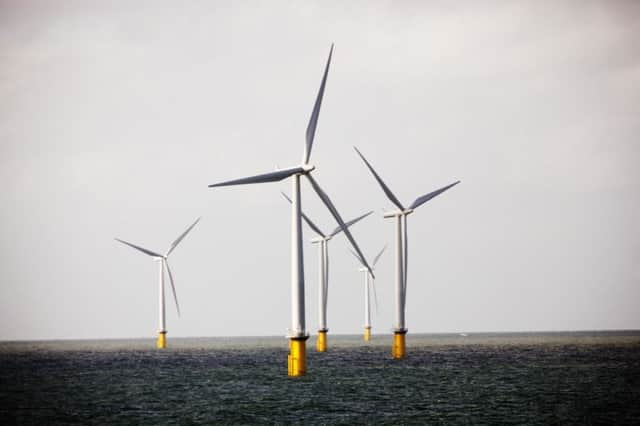Offshore wind power '˜pretty much dead'


Brian Wilson, a former Labour MP who was an energy minister in Tony Blair’s government, made the comment after RSPB Scotland won a legal challenge against 335 turbines due to be erected in the Forth and Tay firths.
He criticised the way Scottish ministers handled the consenting process and said conservationists now “hold all the cards”.
Advertisement
Hide AdAdvertisement
Hide AdBut his claims were dismissed by Paul Wheelhouse, the Scottish Government’s minister for business, innovation and energy.
Mr Wheelhouse said: “Brian Wilson’s comments about the future of offshore wind are, in my view, irresponsible, incorrect and ill-informed.
“The offshore wind energy sector has a very bright future in Scotland.”
RSPB Scotland has also hit back at Mr Wilson, who holds directorships in a number of energy-related businesses, insisting that the charity supports renewable schemes of “the right type, in the right place”.
Lloyd Austin, head of conservation policy for the charity, said: “It is simply not true to suggest that offshore wind is dead.
“Of course offshore renewable projects – in the right place – still have a bright future, and we look forward to working with developers to help them ensure their projects don’t damage wildlife whilst exploiting Scotland’s abundance of renewable resources.”
The Neart na Gaoithe, Inch Cape and Seagreen Alpha and Bravo wind farms were given the go-ahead in October 2014.
With a total of 335 turbines, the four schemes could have generated enough power for more than 1.4 million homes.
Advertisement
Hide AdAdvertisement
Hide AdBut RSPB Scotland lodged a court challenge, saying there would be“serious implications” for globally important seabird colonies in the area.
The charity argued that ministers had breached legal requirements by not giving proper consideration to environmental concerns during the decision-making process.
Judge Lord Stewart ruled the consents were “defective”.
Lindsay Roberts, senior policy manager at industry body Scottish Renewables, said: “While we are extremely disappointed with the result of the judicial review, it’s important to remember that Scotland has one of the best offshore wind resources in Europe and development is happening in our waters right now.”
A spokesowoman for the Crown Estate, which leases the seabed and manages the rights to renewable energy out to 200 nautical miles, said it remains committed to supporting the the sector and would work with developers to agree next steps for the projects affected.
“Overall, Scotland’s offshore wind industry continues to strengthen, with nearly 150 turbines either operating or under construction and projects such as Beatrice in Moray Firth, which is set create hundreds of jobs and boost the economy by £680 million, progressing well,” she added.